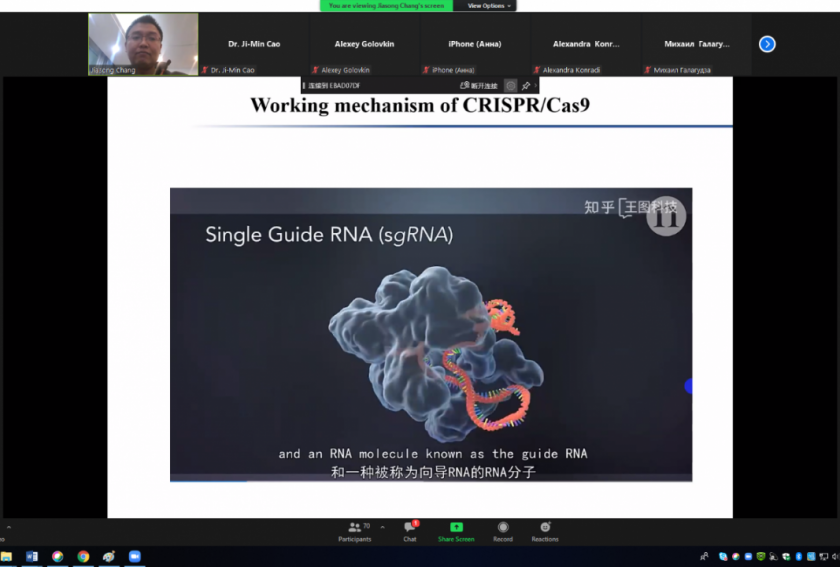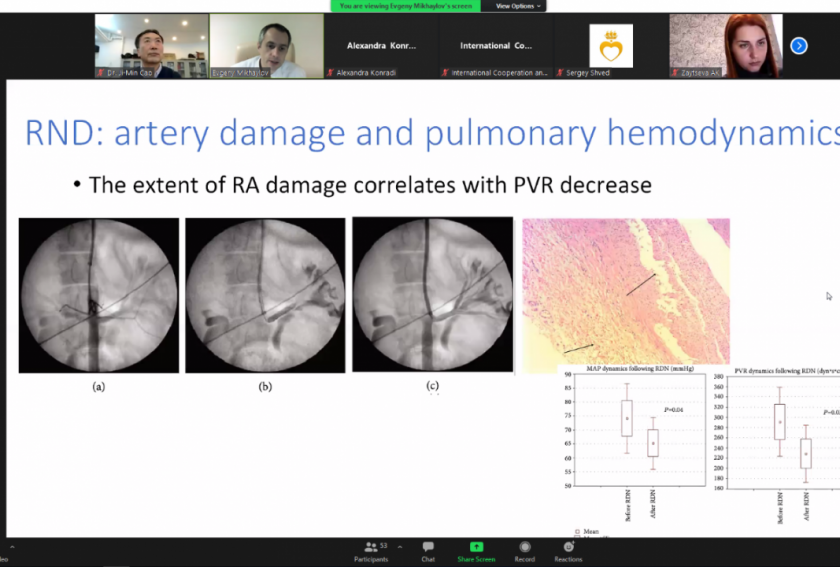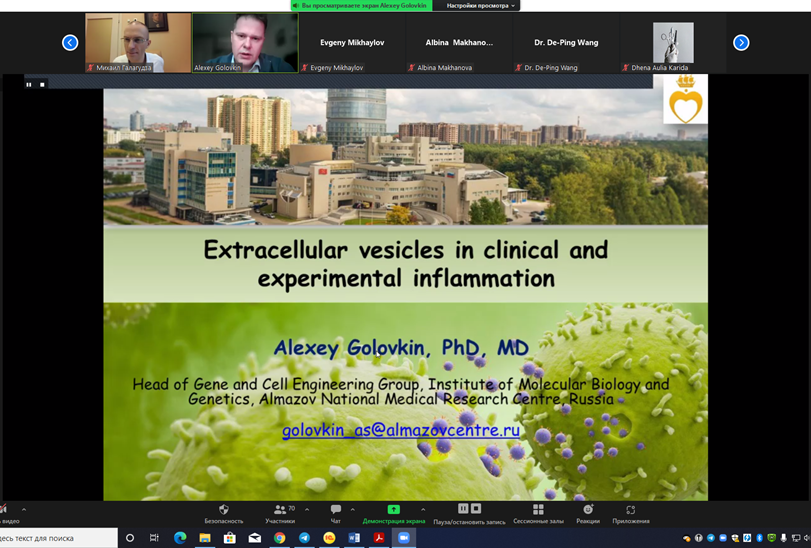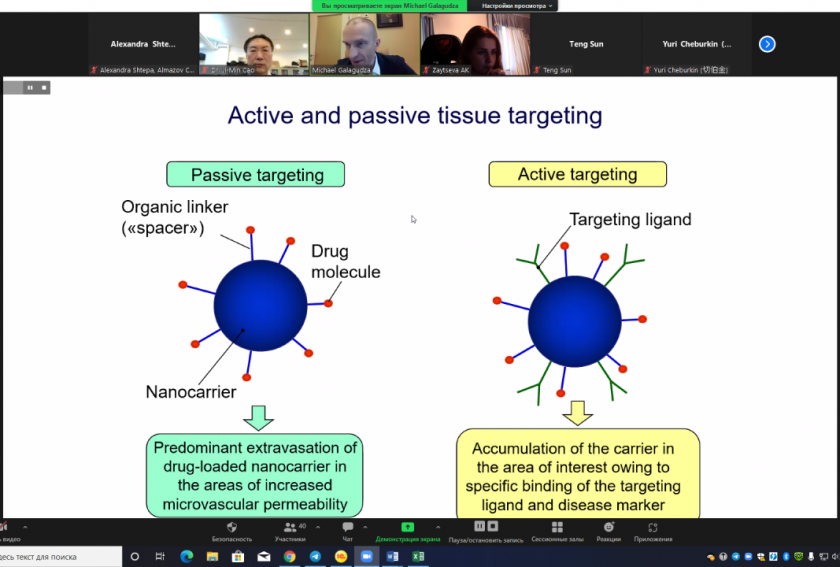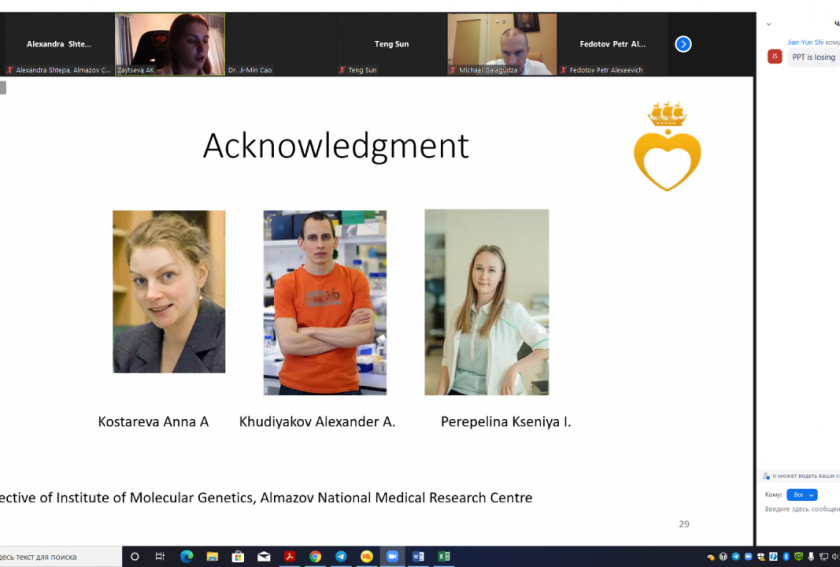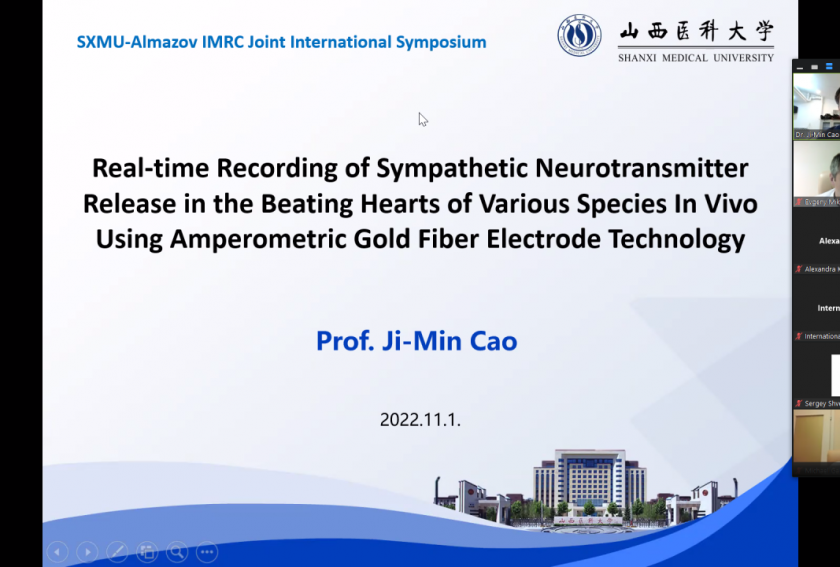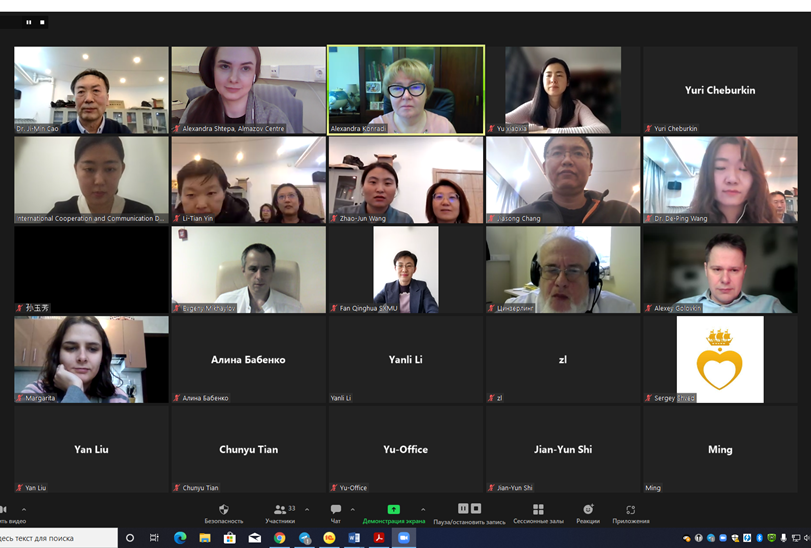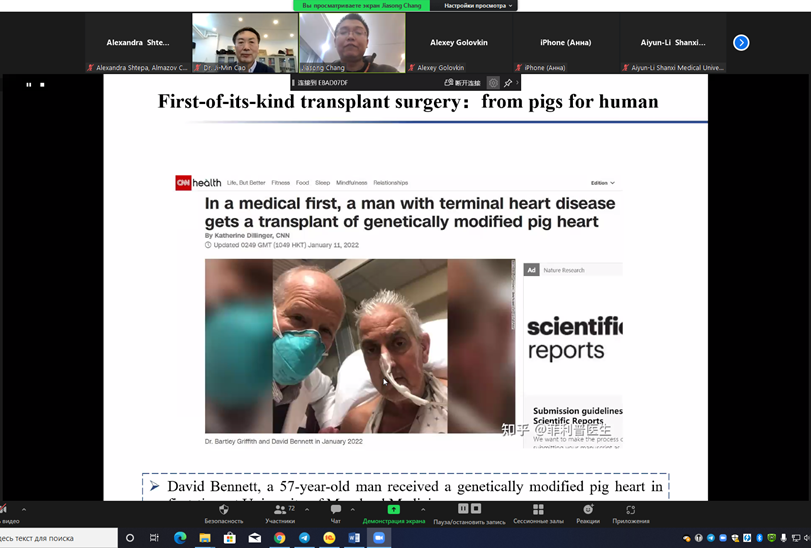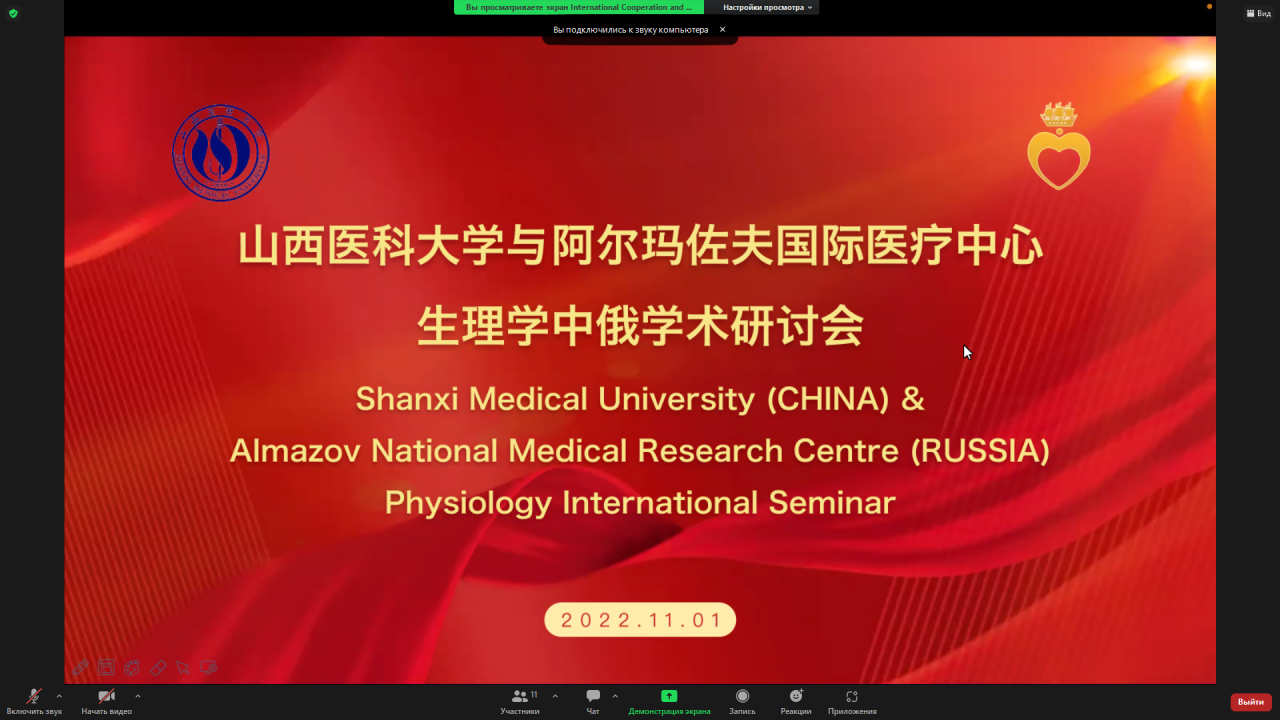
On November 1–2, Almazov Centre held an International Physiology Seminar with Shanxi Medical University (SXMU, China). The seminar was held online and brought together more than 120 participants: representatives and students of Shanxi Medical University as well as specialists from the Institute of Heart and Vessels, the Institute of Molecular Biology and Genetics, the Institute of Experimental Medicine of Almazov Centre.
For two days, the participants discussed topical issues of cell physiology and genetics, as well as the development and clinical use of innovative diagnostic and treatment approaches.
In their welcome speeches, Dr. Chun Liu, Vice President of SXMU, and Alexandra Konradi, Deputy Director General for Research of Almazov Centre emphasized the importance of knowledge exchange at this Russian-Chinese meeting.

Among the highlights were presentations by the specialists of the Key Laboratory of Cellular Physiology, SXMU, devoted to the use of amperometric gold fiber electrode technology, the role of microparticles as biomarkers of CVD, and aged-related shifts in gut microbiome.
Almazov Centre was represented by the following speakers: Evgeny Mikhailov, Deputy Director for Research of the Institute of Heart and Vessels, Head of Neuromodulation Research Laboratory; Mikhail Galagudza, Director of the Institute of Experimental Medicine; Alexei Golovkin, Head of Gene and Cell Engineering Group, Institute of Molecular Biology and Genetics; Yuri Cheburkin, Head of Research Laboratory of Infectious Pathogens and Biomolecular Nanostructures; Anastasia Zaitseva, Junior Researcher at Cell Biology Group. Their presentations were focused on the topics: neuromodulative approaches for cardiovascular diseases, extracellular vesciles in clinical and experimental inflammation, recombinant protein-based nanotrap, multifunctional nanoparticle-based platforms for theranostics of myocardial ischemia and cancer.
In closing, the participants highlighted the importance of bilateral interaction and outlined possible cooperation areas for a Memorandum of Understanding. The Chinese colleagues also emphasized the value of cooperation with Russian experts and expressed their willingness to implement joint projects in the future.

